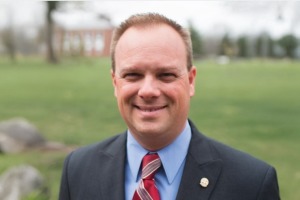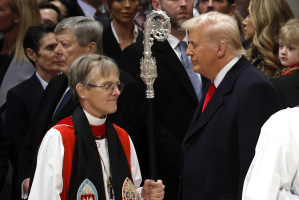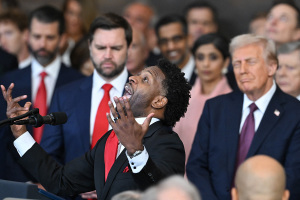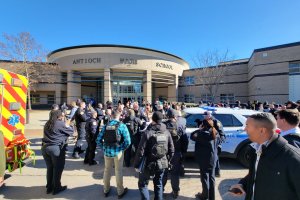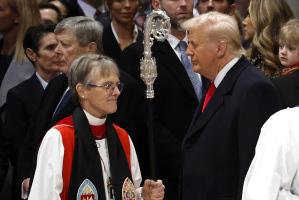Philando Castile: Obama and Media Over-Hyping Latest Black Suspect Shot by Cops

Protests by Black Lives Matter around the country has increased lately, directed at the police over perceived mistreatment of black suspects.
On July 6, police fatally shot Philando Castile in Minnesota. His girlfriend filmed him after he was shot and uploaded the video live to Facebook as he was dying, sparking an outrage. As is becoming part of a disturbing pattern, Black Lives Matter rioters immediately jumped to the conclusion that Castile was treated brutally by law enforcement simply because he was black. It happened a day after the fatal shooting of Alton Sterling, another black man who was shot by law enforcement in Baton Rouge.
Although the shooting of Castile occurred in St. Paul, the worst reaction took place in Dallas, where five police officers were shot and killed in retaliation. On Sunday, three officers in Baton Rouge were fatally shot in revenge for the shooting of Sterling, with three more injured.
Yet what keeps getting proven over and over again with these incidents — especially since so many law enforcement officers nowadays are black themselves or another minority — the shooting had nothing to do with racial bias. For example, in the black-majority city of Baltimore, where Freddie Gray died of injuries while in police custody, minorities make up more than half of the police force. Three of the six officers who had charges filed against them were black.
Castile, 32, worked in a school cafeteria. In her video, Castile's girlfriend, Diamond Reynolds, made several allegations that have not been proven, such as that police had shot him four times even though he put his hands in the air. As he was dying, she said the other officers failed to check him for a pulse, or give him first aid, but merely comforted by the officer who had shot him. She said he received no medical attention for over 10 minutes after being shot when paramedics arrived. He died in the emergency room, about 20 minutes after being shot.
Contrary to his girlfriend's statements, a resident living across the street from the site of the shooting took a brief video showing an unidentified officer administering first aid on Castile before the arrival of paramedics.
Officer Jeronimo Yanez, who is Hispanic, had pulled Castile over since he matched the description of a black suspect in a recent robbery who also had a wide nose and drove a white Oldsmobile. Additionally, Castile had a brake light out on the car.
Reynolds explained to reporters later that Castile told the officer as he approached the vehicle, "I have a firearm on me," at the same time he was reaching into his back pocket for his wallet.
At that point, Yanez shot Castile. Yanez's attorney, Thomas Kelly of Minneapolis, said his client "reacted to the presence of that gun and the display of that gun. This had nothing to do with race. This had everything to do with the presence of a gun."
It has since been confirmed that Castile did take a concealed weapons training class to obtain a CCW permit, and the instructor said he would have learned not to say "I have a gun" if pulled over.
I am a former gun magazine editor, and every firearm training class I've taken has included instructions to put your hands in the air or where law enforcement can see them when informing an officer that you have a gun in the vehicle. A former police officer who contributes to Guns & Ammo, the largest gun magazine in the country, says in a situation like that, you should put your hands on the steering wheel where the officer can see them, tell him that you are a CCW permit holder, then say you have a firearm.
The only question is whether Yanez should have made a felony stop instead, where officers order everyone out of a car before approaching it. We don't know the precise law here yet, nor his reasoning; maybe he recognized Castile from previous low-level traffic violations and did not think he was a threat.
According to the Associated Press, Castile had been stopped or ticketed at least 52 times in the past, racking up more than $6,000 in fines. He was cited for minor traffic offenses ranging from driving without a muffler, operating a vehicle after license revocation, and not having a proper insurance card. There were a total of 86 total misdemeanor or petty misdemeanor counts against him. He certainly looked like the grainy photos of the suspect.
These premature protesters need to wait until the evidence comes out, including both witness and law enforcement testimony. The media irresponsibly often just quickly collects a few remarks from whoever can respond the fastest, and since law enforcement is under such stringent rules and regulations, they are not likely to respond quickly enough to present a balanced article.
Predictably, Obama fanned the flames, calling on the U.S. to "do better" and said that controversial incidents arising from the police use of force were "not isolated incidents" but rather were "symptomatic of a broader set of racial disparities that exist in our criminal justice system."
He continued, "When incidents like this occur, there's a big chunk of our citizenry that feels as if, because of the color of their skin, they are not being treated the same, and that hurts, and that should trouble all of us."
As I've written previously, Obama is responsible for much of the rise of Black Lives Matter. He could have used his influence as the first black president to show that race relations have gotten better, but instead he has chosen to label incidents as racist before all the facts are in, in order to help Democrats.
The crime index in St. Paul is 11, in contrast to 100 being the safest areas in the country. Anyone who carries a gun should know that the police are going to be on elevated alert in high-crime areas. Reaching toward your pocket and telling a police officer you have a gun when you fit the profile of a robbery suspect was a tragically foolish decision. Also, there are certain types of cars that law enforcement looks at more suspiciously, due to a preference by criminals.
Anyone carrying a firearm, regardless of their race, better know how to carefully bring up the presence of such during an encounter with law enforcement. Until Yanez's reason for not performing a felony stop is revealed, and hopefully it is also discovered whether or not Castile robbed the convenience store, it is too premature to make judgments. But the one thing reasonable minds can agree on, this was not about police racism — unless you want to start off a race war between blacks and Hispanics.

















